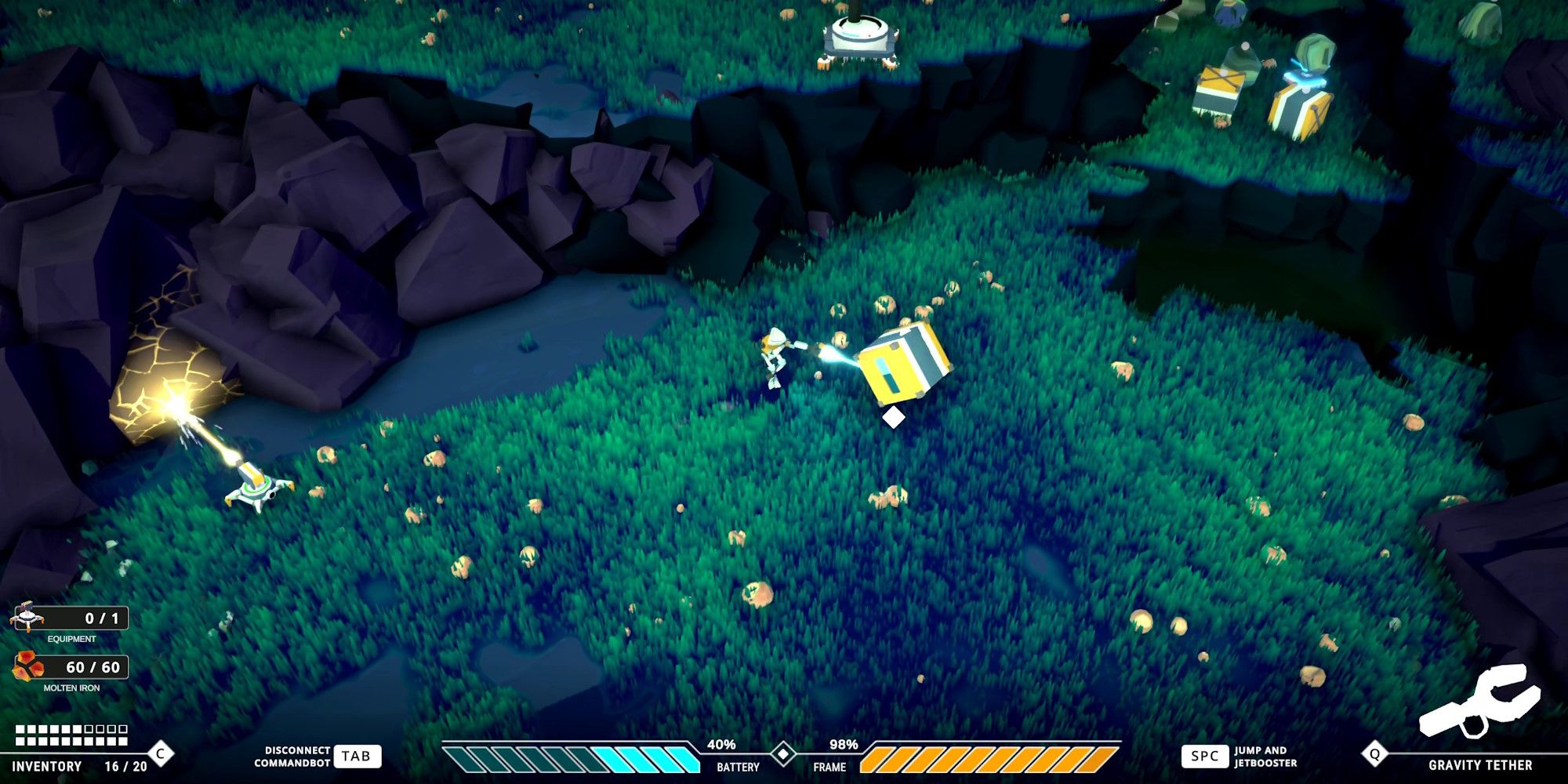Building a Sprawling Space Habitat in Orbiteers Demo

Space isn’t easy but it’s where everything else is. When one deeply exceptional asteroid alone is estimated to be worth $10 quintillion, potentially having the hilarious side-effect of turning gold from the basis of the global economy into just a soft, pretty metal if anyone can figure out how to get it to Earth, the possibilities seem limitless. Granted, people evolved to live with gravity and our soft, squishy biological systems are built around having plenty of air and water and a minimum of radiation, but science fiction has hand-waved those problems away with a “We’ll figure something out” attitude for decades now. The future of industry is Up There, and if we can harvest the riches of the solar system then building a habitat shouldn’t be too hard to manage.
Growing a Space Station One Module At a Time
It’s easiest to start off in planetary orbit, and thankfully we’ve got two of them handy thanks to the relatively large one we live on and the Moon, so that’s a great start. Orbiteers is a space-station building and puzzle game that jumps from one planet to the next, and it’s released a demo today to show off its chill satellite-constructing vibe. Beginning with a central hub and a few basic instructions, you piece together residential, industrial, power, science, and other module types to earn the L.U.N.A. alloy needed to progress. Each module has a number of bonuses based either on nearby or connected structures, and the trick to a successful station is to maximize points from module synergies while arranging everything on the hex grid so that there’s room to expand. Not every module has multiple connection points, and it’s easy to build a dead end before you realize how the structures fit together.

Related
It’s a Livin’ In the Asteroid Fields of Astronomics
While Astronomics does fall into the “job as game” category, it’s a good job that starts off fairly basic and expands as it goes.
The Orbiteers demo dropped today and it’s the earliest part of the game, maybe a little too easy but also nicely relaxed, so no complaints. It takes you through the first three objectives, one of them being the main goal and the other two sub-goals, and you can keep playing and adding bits even after they’re complete. The game is enjoyably forgiving, with an Undo that lets you go back several moves to test out different configurations, and while the one level in Earth orbit seems like it would take some work to screw up, eventually you’ll need to build space stations around the Moon, Mars, Saturn, and Neptune. These later planets promise to have more strategic missions, chasing after scoring bonuses while building a space station that doesn’t look quite so much like a chaos-tangle of components.
While there’s no release date yet for Orbiteers other than in the final quarter of this year, you can play the demo on Steam now to get a sense of how things will fit together. It’s a nice evening’s bite-sized chunk of gaming, perfect for unwinding while watching a planet slowly spin beneath a growing structure that, hopefully, won’t make its astronauts’ lives too difficult as they navigate its every-growing sprawl.












